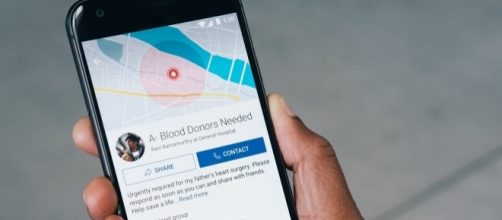A different kind of public health crisis has just been declared. social media, Smartphones, and apps have taken control of people. That is how Tristan Harris, who served as Google's design ethicist, puts it upon close scrutiny of billions of phone-toting individuals who have become hooked on leading Social Networking Sites Instagram, Facebook, and Twitter.
Individuals may have the upper hand in choosing which apps, social networking sites, and smartphone models to use, but these powerful social persuasion tools have successfully manipulated many people, one click, swipe and notification at a time.
Even when people are spending time with loved ones, in the bedroom, while dining out, or even while taking a bath, it seems like people are not about to let go of their valued smartphones and favored networking sites.
Whether it is to catch the latest news and celebrity tidbits, to see what friends and family are up to, or check out other everyday interests, people from different parts of the world are tinkering with their smartphones and checking out apps. The digital disruption has definitely accelerated.
Yet for all the many advantages being tech-savvy and alert to social media notifications may bring, the use of modern tech tools has its negative repercussions. Countless cases of teens and young adults have experienced cyberbullying.
Harris opined that as people spend an increasing amount of time using their phones, it tends to change them on the inside.
Influencing minds
Social networking sites, accessed through laptops or smartphones, may also reinforce tensions and conflicts. Biases, differences in values, priorities, and mindsets are played out each day on Facebook, Twitter, and other sites. While free discussion of ideas and expression of sentiments may be good, both mainstream and alternative forms of media have ways of influencing minds and triggering public alarm. A case in point is the apocalyptic prediction for earth this 2017, among them more natural disasters like a global drought.
The flip side is that any information or announcements shared on social media may be of help.
Examples are warnings of dangerous new drugs, posts about inspiring people whom current and new generations may emulate, legitimate money-making opportunities, and innovations like Safety Check and shout-outs for blood donation that can aid people in times of crisis.
Discerning what is real
At the end of the day, it all boils down to striving to discern what is real, or positive and life-enriching. Harris – who has studied how technology tends to manipulate the human mind, especially as it relates the spread of conspiracies and misinformation – did not discount the possibility that Facebook, as what social media chief Mark Zuckerberg keeps on stating, can possibly make the community better and improve people’s lives.
Yet he opined that it is hard to visualize those things, given the fact that just about everything we see in our news feed fosters consumerism – from marketing pitches and self-published articles to videos to watch.
One idea that emerges is, as tech has become an integral part of modern living, can smartphones and social media inch us closer to the life we really want? Harris maintained that people get enticing options through the social media platforms that address what they may need (or think they need) and crave for. Little do most individuals realize that they are choosing from persuasive options driven by major tech companies who have gradually redesigned people’s lives.


